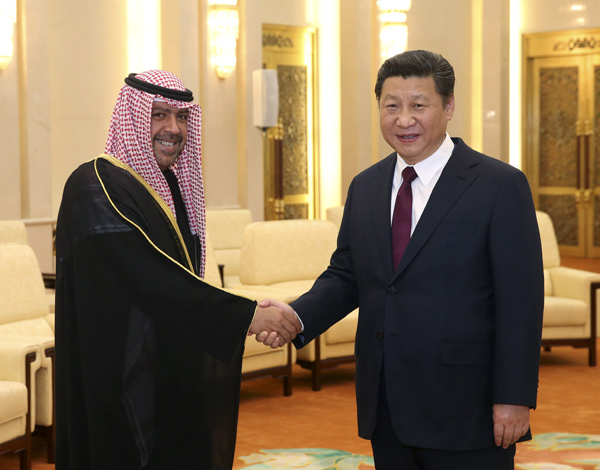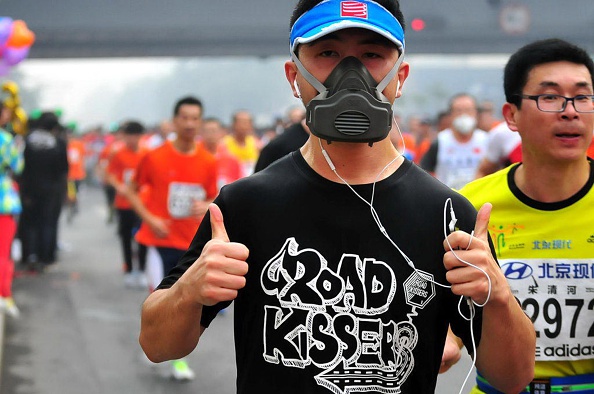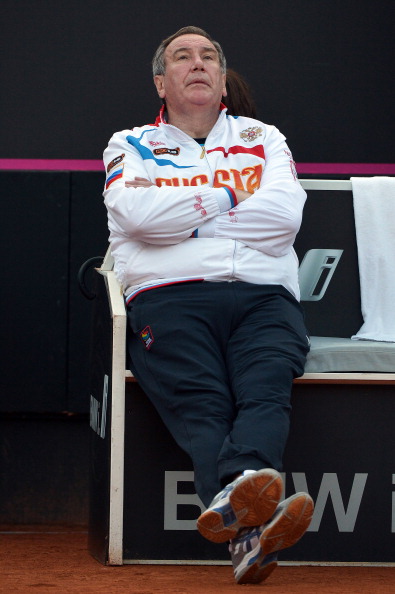LAUSANNE, Switzerland — The International Olympic Committee is trying, really trying, to prove that Agenda 2020, the would-be reform plan that president Thomas Bach and the members passed last December in Monaco, amounts to significant change. But when confronted with real-world realities, like the two candidates for the 2022 Winter Games, Beijing and Almaty, Kazakhstan, which made presentations here Tuesday to the members, the question must be asked: how much change, really, is in the air?
This is the predicament the IOC has put itself in, and it has only itself to blame.
To be clear, Agenda 2020 is at best aspirational. The only concrete point among the 40 that the members approved in Monaco is the development of a television channel.
The rest are in line with prior efforts at reform — in particular, a 2003 package of 117 specific recommendations that included the format of the Games, the bid process, TV coverage, the extravagance of the opening and closing ceremonies, fiscal accountability and more.
In recent days, the IOC has done self-congratulatory cartwheels over changes, purportedly spurred by Agenda 2020, to venues in Tokyo for the 2020 Games; those moves will save $1.7 billion. Saving that much money is of course to the good. But if the IOC were really that interested in saving money in the first instance it would have chosen Madrid for 2020 — where, all-in, the construction budget totaled a mere $1.9 billion.
We live in the real world. Tokyo was going to be elected because that was part of the three-way deal at the IOC session in Buenos Aires in 2013 — Tokyo for 2020, wrestling getting back on the Summer Games sports program and Bach for president against five challengers.
We live in the real world.
While it is true that Agenda 2020 has considerably strengthened Bach’s standing as IOC president — and the IOC traditionally works best when the president is firmly in charge — Agenda 2020 now has to be measured against the real world.
For the IOC, the first significant test is this 2022 process. To be real, for the IOC this 2022 process probably can’t end soon enough. After the hangover of Sochi 2014, and the $51 billion figure associated with those Games, a handful of western European cities pulled out of the 2022 contest, leaving only Beijing and Almaty.
Almaty presents a compact bid with real snow. That’s far more in line with the spirit of Agenda 2020.
But Beijing, with China’s political and economic strength, has assuredly emerged as the overwhelming favorite.
Even with Agenda 2020, the IOC stuck with the post-Salt Lake City rule that prevents the members from visiting any of the bid cities.
Of course, a significant number of the members spent 17 days, or more, in Beijing at the 2008 Summer Games and, as well, visited China last summer for the Nanjing Youth Games. Big advantage to Beijing.
Because there are no visits, the IOC prepares a report after visits to the candidate cities by what’s called an evaluation commission. The commission visited the cities earlier this year. Many of the members candidly admit they don’t read the report. It’s full of facts, figures and coded double-speak.
Our real world is full of uncertainties. In the 2022 report, 137 pages long, this is the one paragraph that jumps out, from the Beijing analysis:
“Overall, the [organizing committee] budget appears to be well thought-out and presents a viable financial plan. Upside potential on marketing revenues, strong government support and experience gained from hosting the 2008 Games suggest that the degree of financial risk should be relatively low.”
To hammer home the point that the members can sleep at night if the Games go to Beijing, there’s this as well:
The 2008 Games generated $1.2 billion in sponsorship. The 2022 estimate is only $740 million. The commission said the 2022 bid team “appears to have significantly underestimated sponsorship targets” — that is, they significantly low-balled the number.
From the report on Almaty:
“Kazakhstan has limited experience with complex high-value marketing programs relating to sporting events.”
And: “The guarantee regarding the financing of venue costs involving multiple parties, creating ambiguity on the division of responsibility including ultimate financial responsibility.”
And: “Economic factors, including low oil prices and exchange rate issues, could negatively impact Games preparations and the government’s capacity to provide financial and other support.”
How does all this jibe with Agenda 2020?
Let’s see, because the IOC put out a statement Tuesday after both bids made their presentations to the members in which Bach said, “You could see a clear focus in both bids on sustainability and affordability.”
Turning to the Beijing bid, and focusing first on sustainability:
There is no little to snow in the mountains there. The evaluation report is clear that the Chinese would have to use artificial snow, requiring diversion of water from existing reservoirs, which may impact other land uses. The proposed alpine ski and sliding venues as well as the Olympic village in the mountains are next to a nature reserve, which would “impose a number of environmental requirements.” Travel times will be long. Air pollution is a “prime concern.”
Again, from the report: “Northern China suffers from severe water stress and the Beijing-Zhangjiakou area is becoming increasingly arid.”
And: “The commission considers Beijing 2022 has underestimated the amount of water that would be needed for snowmaking for the Games but believes adequate water for Games needs could be supplied.”
It’s almost laughable, really, because the Beijing slogan is “Joyful Rendezvous upon Pure Ice and Snow.”
Pure?
From the IOC evaluation report: “The word ‘pure’ conveys China’s desire to create a cleaner environment.”
To piggyback off the Almaty slogan, “Keeping it Real”: how has that worked out since 2008? Earlier this year, there were pictures of runners wearing masks at the Beijing marathon. That was, for sure, real.
Continuing from the IOC report on Beijing: the ski jump there would require the relocation of 400 people, one of the Olympic villages another 1,100. All 1,500 have been offered “new housing or compensation.”
As for affordability?
Almaty 2022 said its infrastructure budget totals out at $1.853 billion.
For comparison, Beijing said its capital works would cost $1.511 billion. Less than Almaty! For real?
Who believes — after a reputed $40 billion was spent for 2008 — that a 2022 Beijing Winter Games, considering for starters the environmental work that needs to be done up in the mountains, would cost only $1.511 billion? Again -- for real?
There’s a new train line needed between Beijing and the mountain venues. Intriguingly, that’s not included in the $1.511 billion figure.
So now we have a new way of Olympic accounting, to compensate for the Sochi hangover.
Before Agenda 2020, there used to be there were two columns of numbers: 1. Games costs and 2. infrastructure that went with the Olympics.
Now there are three: 1. Games costs, 2. infrastructure that goes with the Games and 3. infrastructure that goes with the Games (like that train line) but is not being identified as going with the Games so that it can never, ever be counted because that way there can never, ever be a $51-billion figure ever again.
Is that even remotely honest? Either from our Chinese friends or the IOC? How is that in keeping with Agenda 2020’s demand for financial accounting and transparency?
This is what the IOC will have to answer for if the members elect Beijing, not to mention seven years of human-rights protests, just as in the run-up to 2008.
This is the opening the Kazakhs tried to take advantage of on Tuesday — hammering, time and again, on the proposition that they were “keeping it real,” reminding the members that they have snow, and lots of it.
To be real, the odds are still against Almaty. But maybe it's a race.
Kazakh prime minister Karim Massimov headed the Almaty delegation and was widely credited with giving an excellent performance, longtime IOC member Dick Pound of Canada, for instance, saying he was “very, very agreeably surprised” by the presentation.
That 2003 IOC report, with the 117 recommendations? It was headed by Pound.
Massimov told the members the bid was a “national priority,” and that Agenda 2020 aligned “perfectly” with the desire to leave “lasting economic, health and sporting legacies for future generations.”
“To put it simply,” he said, “Kazakhstan not only wants the Winter Games, we need the Winter Games.”
The vote in Kuala Lumpur is July 31.











